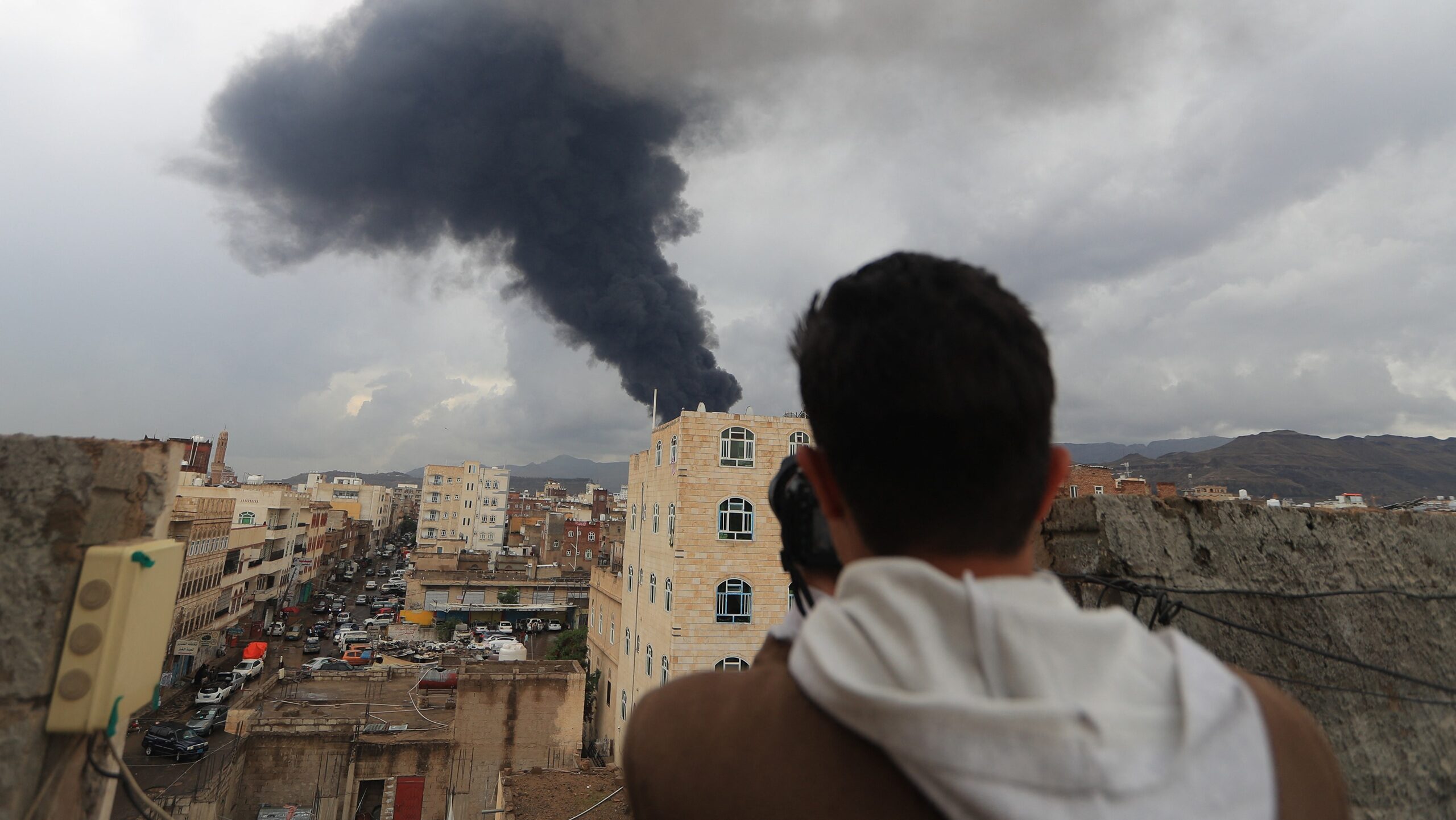Israel Launches Major Strikes in Yemen After Houthis Fire Cluster Missile at Central Israel
The Israeli Air Force struck multiple sites in Yemen’s capital, Sanaa, on Sunday in response to a Houthi missile attack on Israel that, for the first time, carried a cluster warhead. The strikes, involving more than 10 aircraft flying some 2,000 kilometers, targeted a military compound housing Yemen’s presidential palace, two power plants, and a fuel depot.
The Israel Defense Forces (IDF) said the targets were chosen because they supported Houthi operations, including missile and drone launches. “The strikes were conducted in response to repeated attacks by the Houthi terrorist regime against the State of Israel and its civilians,” the military said.
According to Israeli officials, the Houthis’ missile fired Friday night broke apart midair, releasing multiple submunitions over central Israel. One piece struck the yard of a home in the town of Ginaton, causing damage but no injuries. “Our upper-tier air defense systems are capable of intercepting such missiles, as they have in the past,” the IDF said, while acknowledging the attempted intercept failed to stop the fragments.
Cluster munitions are a type of weapon designed to disperse dozens of smaller bomblets over a wide area. Because many fail to detonate immediately, they often leave behind hazardous unexploded ordnance that can kill or maim civilians long after fighting has ended. For this reason, 112 countries signed a 2008 convention banning their production, use, and stockpiling. Neither Israel nor Iran are parties to the treaty. Human rights groups have long argued that cluster munitions are inherently indiscriminate and pose unacceptable risks to civilian populations.
This holiday season, give to:
Truth and understanding
The Media Line's intrepid correspondents are in Israel, Gaza, Lebanon, Syria and Pakistan providing first-person reporting.
They all said they cover it.
We see it.
We report with just one agenda: the truth.


The Houthis, whose slogan calls for “Death to America, Death to Israel, [and] a Curse on the Jews,” have launched more than 70 ballistic missiles and at least 23 drones toward Israel since March, according to the IDF. Most have been intercepted, though some have caused casualties, including one attack in July that killed an Israeli civilian in Tel Aviv.
Prime Minister Benjamin Netanyahu, Defense Minister Israel Katz, and IDF Chief of Staff Lt. Gen. Eyal Zamir monitored Sunday’s operation from Air Force headquarters in Tel Aviv. Israeli defense officials say the repeated strikes on Yemen are intended not only to neutralize immediate threats but also to degrade the Houthis’ military infrastructure, which relies on Iranian support.
Yemeni health authorities aligned with the Houthis reported at least two killed and 35 wounded in the strikes, though those claims could not be independently verified.
The Houthis vowed to continue attacks, linking their operations to the war in Gaza. “We will not retreat until the aggression is lifted, the siege is broken, and the starvation of Gaza’s people is stopped,” said Houthi official Mohammad al-Farrah.
Israeli officials counter that the group is exploiting civilian infrastructure for military use, citing the targeted power plants as examples of facilities serving combat operations.
Sunday’s attack was Israel’s 15th confirmed strike in Yemen since November 2023, when the Houthis began targeting Israel and Red Sea shipping lanes. Analysts say the conflict has expanded Israel’s battlefield by more than 1,000 miles, highlighting the broader regional dimension of its war with Iran-backed groups.

